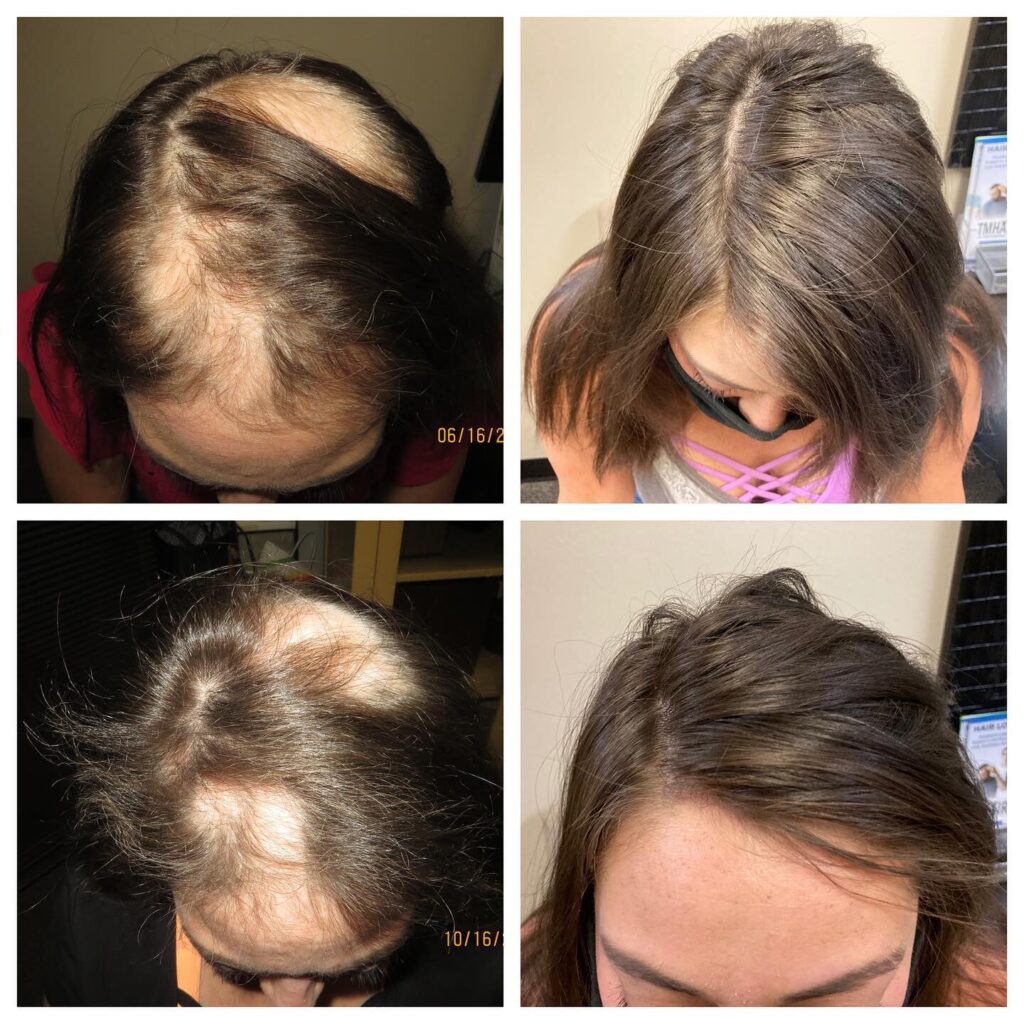Alopecia Solutions
At TM Hair of Houston,TX we know that each case of Alopecia is different and we are experts in each solution to recommend what is best for you.
There are many different types of alopecia- an auto-immune disease that in some cases, the only side effect is hair loss. There are more common types that men and women of any age can experience. In some cases – we see total re-growth. In other cases – the hair does not come back. Each individual and case is different.
Alopecia Areata is when there are round, smooth patches of hair loss in various sizes. Injections and laser therapy can be used to stimulate regrowth in the bald spots or patchy areas. And sometimes stress can trigger hair loss.
Alopecia Totalis is the total loss of hair on the scalp. Again, sometimes the hair will grow back – and sometimes it doesn’t. There are custom hairpieces available to give the client their hair individual hairstyle back and sometimes insurance coverage may apply.
Alopecia Universalis is the rarest form of alopecia and presents itself as the loss of hair over the entire scalp and body. This includes eyelashes, eyebrows and hair on your arms and legs.
Scarring Alopecia can be diagnosed by getting a biopsy of the scalp. If a person has scarring alopecia, we know that hair regrowth is not possible and we wouldn’t do treatments to attempt re-growth.
Androgenetic Alopecia is a fancy word for genetic hair loss. Men typically have male-pattern hair loss where you lose the hair on top but keep the hair on the sides and back. This is because of a hormone called DHT and now we can treat balding men with medication, laser therapy, topical products and hair transplants. For women with genetic hair loss- there usually isn’t a pattern; it’s more of a diffused thinning throughout the entire scalp. Some medication, laser therapy and injectable therapies can be used for women to treat genetic hair loss.
Traction Alopecia is a hair loss condition caused by damage to the follicle by constant pulling or tension over a long period, typically from wearing tight braids or cornrows. It is reversible if diagnosed early, but may lead to permanent hair loss if it is undetected for a long period of time. Hair loss is often in the frontal and temporal regions.


